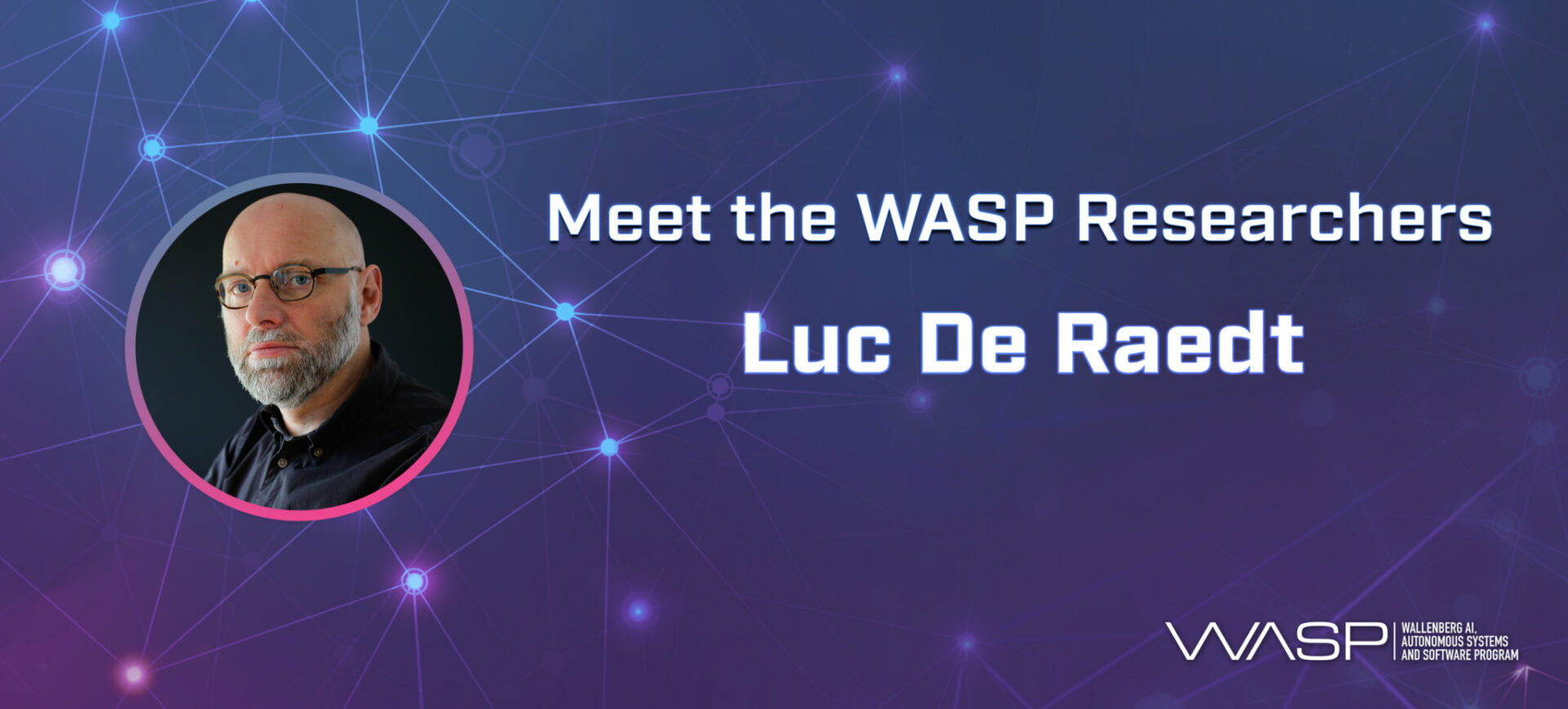WASP is very proud to have so many excellent researchers involved in the program. More than 450 researchers, reaching from assistant to senior professors, are affiliated with WASP. Some are international recruitments who have come to Sweden to join the WASP community, others are already well established in the Swedish academic system.
Through a series of portraits, you get the opportunity to get to know them a little bit better.
Meet Luc De Raedt
Luc De Raedt is a Wallenberg Guest Professor at the Centre for Applied Autonomous Sensor Systems (AASS) at Örebro University, and a full professor at KU Leuven and the director of the KU Leuven AI Institute. Professor De Raedt was recruited by WASP in 2020.
What is your position/role in WASP?
Wallenberg Guest Professor at Örebro University.
Why did you choose to join WASP?
WASP is one of the earliest and largest AI programs in Europe. It is a source of inspiration for many other national and international programs. I am very excited and proud to be part of it as a Wallenberg Guest Professor in Computer Science and Artificial Intelligence at Örebro University.
What are the benefits you see in WASP?
WASP is a community of researchers that focuses on AI, on research excellence and that is making impact. Thanks to the generous support of the program, I have been able to start a group that focuses on integrating machine learning and machine reasoning, and its application in autonomous sensor systems.
Briefly describe your research topic.
I have always focused on the integration of learning and reasoning within AI. While initially, this was mainly about using logics for machine learning, this was later expanded into probabilistic logics and programs, and is now aiming at unifying probability, logic and neural networks in neurosymbolic AI systems. It is addressing a key open challenge in AI and it promises AI systems that can perceive, learn as well as reason.
In what way can your research be of importance to our society in the future?
The quest for integrated learning and reasoning systems is central to trustworthy AI. Without the ability to reason, AI systems cannot justify and explain their results; without the ability to learn, they cannot adapt their behaviour on the basis of experience; therefore – without these abilities – they cannot really be called intelligent.
For more information about Professor De Raedt, see https://www.oru.se/english/employee/luc_de-raedt
Published: February 23rd, 2023
[addtoany]


